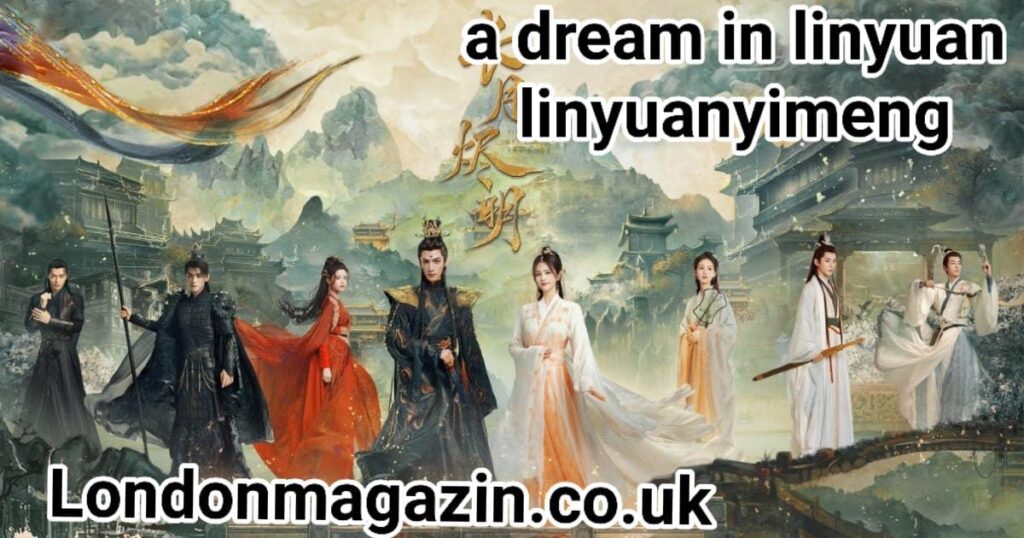In the vast world of dreams, metaphysical realms, and symbolic narratives, certain phrases resonate with people, invoking curiosity, awe, and contemplation. One such phrase is “a dream in Linyuan Linyuanyimeng”, a phrase that seems to blend poetic elements with deep cultural or spiritual undertones. This phrase, though not widely known in mainstream discourse, offers a fascinating lens through which we can explore themes of dreams, aspirations, and the cultural significance embedded in seemingly cryptic terms. In this article, we will explore the meaning behind “a dream in Linyuan Linyuanyimeng,” how it connects to personal aspirations, and its possible implications in various contexts.
Understanding Linyuan and Linyuanyimeng
Before diving deep into the meaning of the phrase, it’s essential to understand the components of Linyuan and Linyuanyimeng. These words, particularly in their original linguistic and cultural contexts, carry intricate meanings that are often lost in translation. Both are rooted in Chinese culture, but the exact definitions can vary depending on interpretations, regional dialects, and philosophical schools of thought.
Linyuan (临园) can be roughly translated as “approaching a garden” or “entering a space of tranquility.” The term suggests a state of transition—stepping into a new environment or mindset. In Chinese culture, gardens have long been symbolic of peace, contemplation, a dream in linyuan linyuanyimeng and natural beauty. To “enter a garden” metaphorically could represent the initiation of a transformative journey, one where the individual seeks growth, self-discovery, or enlightenment.
On the other hand, Linyuanyimeng (临园一梦) could be understood as “a dream within the garden” or more abstractly, “a fleeting dream.” This concept brings forth the idea of an ephemeral or transient experience, often likened to a dream state where clarity and illusion blur. In literature and philosophy, dreams are typically symbolic of the subconscious mind, desires, and unrealized possibilities. “A dream in Linyuan Linyuanyimeng” could, therefore, be a poetic expression of pursuing a deeply personal yet elusive goal—one that exists in the interplay between reality and the subconscious.

The Symbolism of Dreams in Linyuan Linyuanyimeng
Dreams have always held a profound place in human consciousness, transcending cultural boundaries. They serve as vehicles for exploration, self-discovery, and reflection. In the context of Linyuan Linyuanyimeng, the dream may represent more than just an unconscious mind’s wanderings; it could also symbolize the aspirations or ideals that guide a person in their waking life.
In traditional Chinese thought, dreams are not simply random images or sequences of events. They are often seen as windows into the inner workings of the mind, revealing unconscious desires or fears. The garden, a key symbol in this phrase, a dream in linyuan linyuanyimeng enhances this idea of dreams as places where one can find clarity or escape from the harshness of reality. A dream within a garden is not just a fantasy; it is a space of profound meaning, where individuals might explore hidden truths or attain greater understanding.
This dual nature of the dream—both an escape and a place of realization—implies that the phrase Linyuan Linyuanyimeng speaks to an individual’s inner journey. It may a dream in linyuan linyuanyimeng refer to the pursuit of personal growth, but also to the fleeting, sometimes unattainable nature of those dreams. Like a beautiful garden that can be visited but never fully possessed, these aspirations may always remain just out of reach, or they may evolve over time, offering new insights and experiences.
Linyuan Linyuanyimeng in Literature and Culture
To better understand how Linyuan Linyuanyimeng functions as a literary or philosophical construct, we can look at similar themes in Chinese literature and art. In Chinese poetry, gardens often symbolize a retreat into nature where one can achieve a meditative state. Similarly, dreams in classical Chinese literature are used to explore the contradictions between what is real and what is imagined. A prominent example is the well-known Chinese novel Dream of the Red Chamber (红楼梦), which explores the complexity of human desires, societal expectations, and the impermanence of life. The dreamlike quality of the novel reflects the transient nature of life itself—similar to the transitory dream in Linyuan Linyuanyimeng.
In the broader context of Chinese philosophy, especially in Daoism and Buddhism, the idea of dreams is closely tied to the notion of impermanence (无常, wúcháng). Life, like a dream, is fleeting. The “garden” in Linyuan may a dream in linyuan linyuanyimeng therefore be seen as a metaphor for the ideal state of balance or harmony that individuals seek. The “dream” within it, Linyuanyimeng, represents the elusive nature of those desires—their potential to shape one’s life even if they are ultimately unattainable.
A Dream in Linyuan Linyuanyimeng: A Metaphor for Personal Aspirations
At its core, a dream in Linyuan Linyuanyimeng could be interpreted as a metaphor for personal aspirations, especially those that seem both achievable and elusive. This phrase embodies the tension between striving for an ideal and recognizing the limitations inherent in human nature. Much like the characters in Dream of the Red Chamber, individuals today might experience a sense of longing for a perfect world—a peaceful, harmonious existence that feels just beyond their grasp.
In modern terms, the phrase might resonate with people who dream of success, fulfillment, or enlightenment but struggle with the realization that the journey toward these goals is fraught with challenges. It’s a dream that pushes individuals forward while simultaneously serving as a reminder of the impermanence and fluidity of life. The dream, in this sense, is both a motivator and a reflection of the idealized future, but it never quite materializes in its original form.

The Elusive Nature of the Dream: Why We Strive
The idea of an unattainable dream in the garden encapsulates something universal in human nature: the pursuit of happiness, perfection, and self-actualization. People often find themselves chasing after ideals—whether it’s a career goal, a personal relationship, or spiritual enlightenment. These dreams are often motivated by deep-seated desires, yet they are never fully realized in their original conception.
In this way, Linyuan Linyuanyimeng reflects the paradox of striving for goals that are both tangible and intangible. It encourages individuals to keep dreaming, even as they confront the limitations of those dreams. This paradox is central to a dream in linyuan linyuanyimeng many philosophical traditions, both in the East and the West. It encourages reflection on the importance of the journey over the destination, valuing the pursuit of dreams over their actual fulfillment.
Conclusion: The Timeless Relevance of Dreams in Linyuan Linyuanyimeng
The phrase a dream in Linyuan Linyuanyimeng encapsulates a profound meditation on the nature of human aspirations. By invoking imagery of a tranquil garden and the ephemeral quality of dreams, it invites us to reflect on the pursuit of goals that shape our lives. These dreams, though elusive and often unattainable, hold immense value in their ability to inspire growth, transformation, and introspection.
Ultimately, the concept reminds us of the importance of embracing the journey itself—finding meaning in the act of striving, even if the dream may never come to full fruition. Whether we find ourselves lost in the beauty of the garden or waking from a dream, the pursuit remains an integral part of what it means to be human.
Also read this; songbird-serenade-ai-voice
FAQs About “A Dream in Linyuan Linyuanyimeng”
- What does “a dream in Linyuan Linyuanyimeng” mean?
It refers to a metaphorical dream that exists in a peaceful, idealized space (the garden) but remains elusive or unattainable. It speaks to the nature of personal aspirations and the pursuit of goals that may always be just beyond reach. - Where does the phrase originate from?
The phrase has roots in Chinese culture, particularly in the context of literature, philosophy, and the symbolism of gardens and dreams in Chinese traditions. - What do gardens symbolize in Chinese culture?
Gardens in Chinese culture often symbolize peace, harmony, self-reflection, and nature’s beauty. They represent idealized spaces for contemplation and personal growth. - Is Linyuan Linyuanyimeng a common phrase in Chinese literature?
The phrase itself is not commonly found in mainstream Chinese literature but draws on familiar themes of dreams, gardens, and impermanence. It is an artistic and philosophical concept that resonates with the ideals of Chinese poetry and thought. - Can the phrase apply to modern-day goals and dreams?
Yes, the phrase can be interpreted as a metaphor for modern-day aspirations—personal goals that may seem both attainable and elusive, encouraging reflection on the journey of striving rather than the destination. - What does Linyuanyimeng represent in relation to dreams?
Linyuanyimeng represents a fleeting or ephemeral dream. It highlights the idea that some aspirations may be more about the process and experience of striving than their final attainment. - How does the concept of dreams in Linyuan Linyuanyimeng relate to Western philosophies?
Similar to Western ideas about the “pursuit of happiness” or the “American Dream,” Linyuan Linyuanyimeng reflects the tension between chasing ideals and confronting the limitations inherent in human existence. It suggests that the value lies in the


